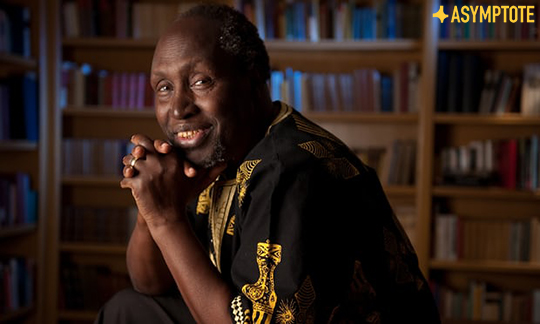Ngũgĩ wa Thiong’o was born 5 January, 1938 in Limuru, Kenya and is a perennial favourite for the Nobel Prize in Literature. Ngũgĩ is at the forefront of a war of resistance regarding the use of language that has spanned many decades. He advocates that African writers write in their mother tongues, because he understands how integral language is to a culture and its identity. Since African literature is mostly written in languages of the minority, the language of the colonizers, Ngũgĩ asserts that this choice stifles the imagination of Africans and their propensity to be creative.
Nearly fifty years ago, Ngũgĩ wrote his first novel, Weep Not, Child (1964), the first written in English by an Eastern African. Ngaahika Ndeenda (1977), translated as I Will Marry When I Want, was co-written with Ngũgĩ wa Mirii. It is a play that depicts the injustices and excesses of post-colonial Kenya. It was acted by “non-intellectuals” in an open-air theater at the Kamirithu Educational and Cultural Center, Limuru. Ngũgĩ’s Gikuyu play sought to bring the theatre closer to the masses and encourage the audience to interact with the play. The play appealed to a wide audience and, because of the resultant reaction by people, the Kenyan government threw Ngũgĩ in prison for a year.

